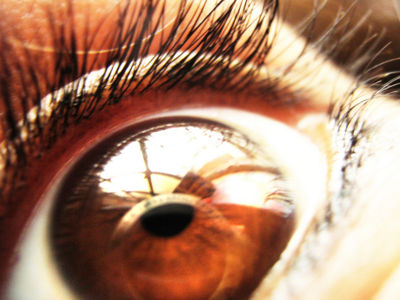Perspectives
| [▲]OER Handbook for educators | |
|---|---|
| Adapt OER | Quality | OER Translation | Offline Versions | Accessibility | Perspectives |
The obvious reasons are scarcity and cost of bandwidth in some parts of the world. For example, in 2004 "Denmark – a country roughly the size of Costa Rica - ha[d] more than twice the international Internet bandwidth than the whole of Latin American and the Caribbean combined" (ITU 2004). And a recent visitor to Tansania noted that he had roughly the same amount of bandwidth connecting his house in the US to the internet that the whole country shared. (Comment by Philip Greenspun during workshop at University of the Western Cape, August 2007.)
A community member of Wikibooks[1] created the Animal Alphabet book[2] there to help young children learn the alphabet. The book features colorful photos that were taken from open sources such Wikimedia Commons and Flickr. After being downloaded, the photos were cropped and resized. Text for each alphabet letter was added. The resulting images were then uploaded to Wikibooks and compiled into the Animal Alphabet book.
Taking that project a step further, another Wikibooks community member remixed the animal alphabet book to create a variety of formats, such as ebooks and videos. These can be used on a variety of hardware platforms (handhelds, iPods, cell phones, etc.) and both online and offline. The videos included music from an open licensed symphony performance and narration that was recorded by the creator. One of these videos was also uploaded to the TeacherTube[3] web site where it has since been viewed over 7,000 times. Converting the Animal Alphabet book to a video was a relatively easy task that only took a few hours, but the resulting remix adds a whole new dimension to the content. Creating and remixing this OER was a rewarding task for the creators and provided a useful resource for teachers, kids, and parents around the world (Contributed by Karen Fasimpaur in 2008).
It occurs to me, as I’ve said before, that as a field we don’t have expertise in the localization process. And by localization, I mean not only translation, but also things like replacing inappropriate media (e.g., pictures of little anglo kids getting of a school bus on a snowy day when you’re using content in Africa) and aligning examples, metaphors, and other socioculturally-loaded bits with the local context (Wiley, 2005).
We really wanted to create something that was entertaining, as well as informative. It seems that mashups have high potential for being humorous, and we went out of our way to utilize that potential. When the creative process was done, we ended up with a video of Kennedy and Nixon debating the pros and cons of blogs and wikis[4]. This entertainment factor is what makes OER's so fun (Contributed by Joel Gardner on May 1, 2008).
Structured data exchange of this sort[using XML] is critical to the future of OER and the elearning economy, but by far the wider community is that of teachers and academics, for whom the remix tool of choice is their word processor. This makes the remix data format of choice a textual, prose file — in other words, the linear, print version that we now offer for our OER, which they can copy and paste into their editor (Dewis, 2008).
Remix happens in an environment in which users/consumers have the capacity to do more than the programmers/producers had planned or even imagined. An architecture that supports remix is an architecture that can be inflected by educators—even (or especially) non-programming educators (Feldstein, 2005).
...we should also be talking about how to ensure that we are using more open courseware, as well as producing it. Why is it that our faculty and learning designers tend to create new content rather than using, modifying, and reusing content that has already been made available and licensed for open use? Obviously there is some of this going on, but why so little, particularly given the cost associated with developing online courses (Udas, 2008)?
Notes
- Jump up ↑ http://en.wikibooks.org/wiki/Main_Page
- Jump up ↑ http://en.wikibooks.org/wiki/Wikijunior_Animal_Alphabet
- Jump up ↑ http://www.teachertube.com
- Jump up ↑ http://www.youtube.com/watch?v=AsFU3sAlPx4
Sources
Dewis, L. (Last Updated 2008, April 14). OER stories:OpenLearn, The Open University. OER Wiki. Retrieved May 14, 2008, from http://oerwiki.iiep-unesco.org/index.php?title=OER_stories:OpenLearn%2C_The_Open_University
Feldstein, M. (2005, October 11). Does Education Inflected Architecture = Web 2.0? Retrieved May 22, 2008, from http://www.mfeldstein.com/does_education_inflected_architecture_web_20/
Wiley, D. (2005, September 27). Thoughts from the Hewlett Open Ed Grantees Meeting. Iterating Towards Openness. Retrieved May 14, 2008, from http://opencontent.org/blog/archives/192
Udas, K. (2008, May 12). Doing OER and OA: More Questions than Answers. Open Students. Retrieved May 29, 2008, from http://www.openstudents.org/2008/05/12/doing-oer-and-oa-more-questions-than-answers/
